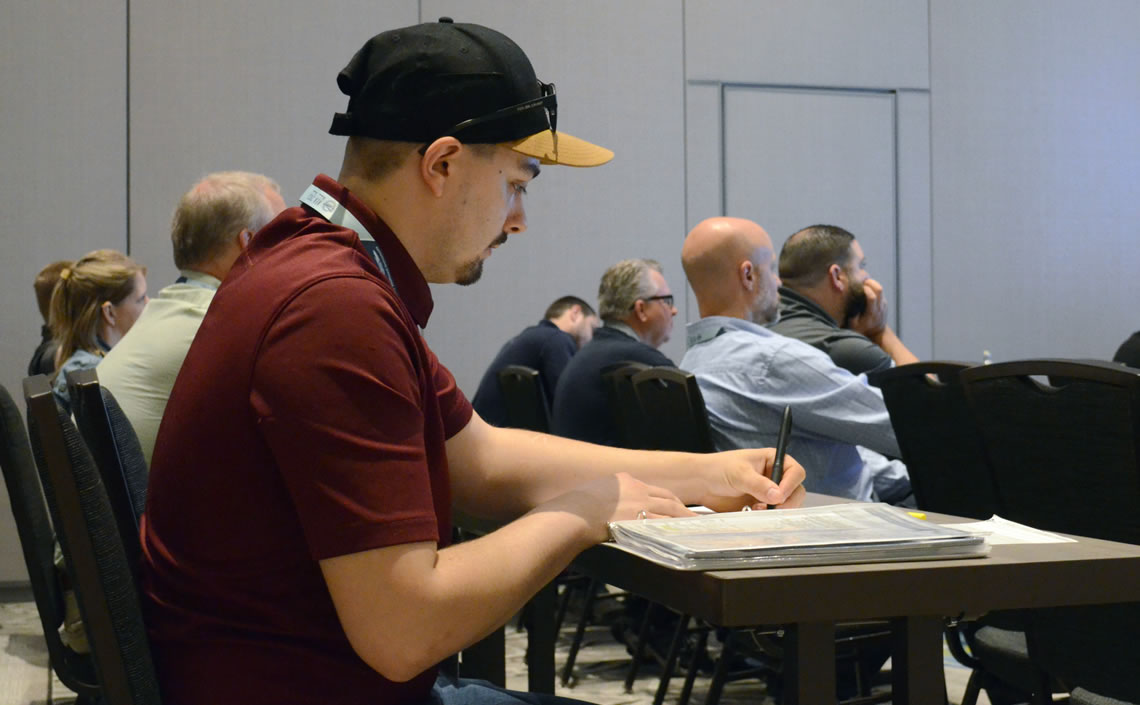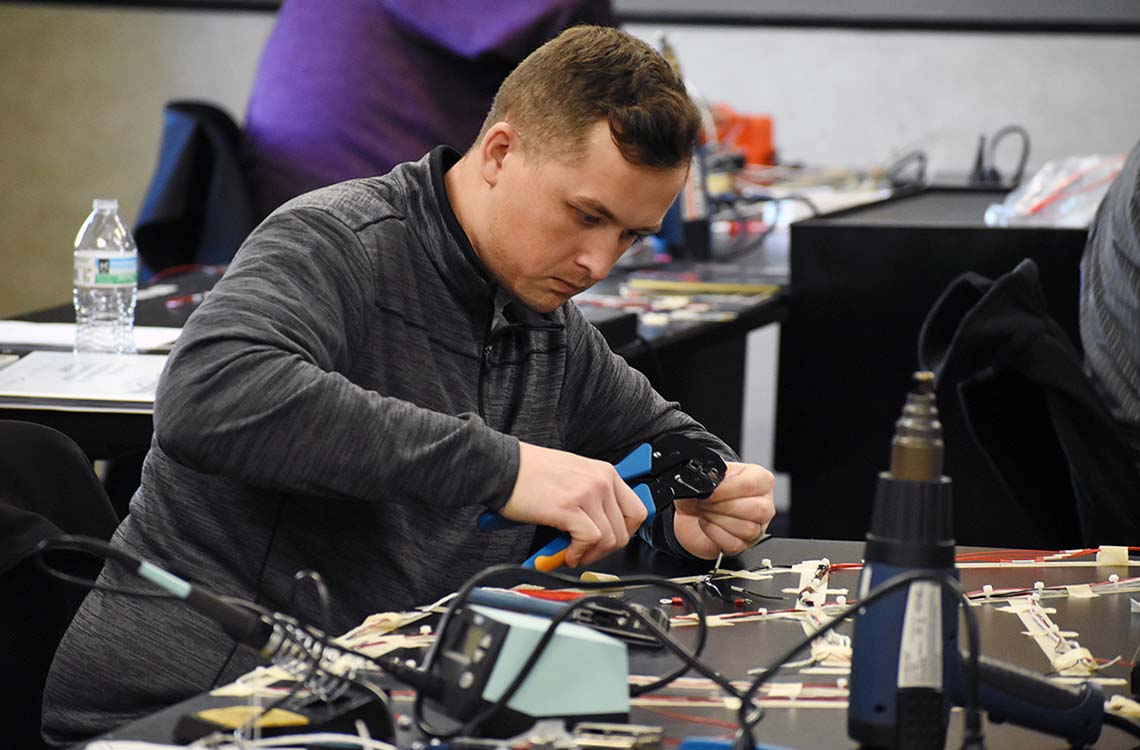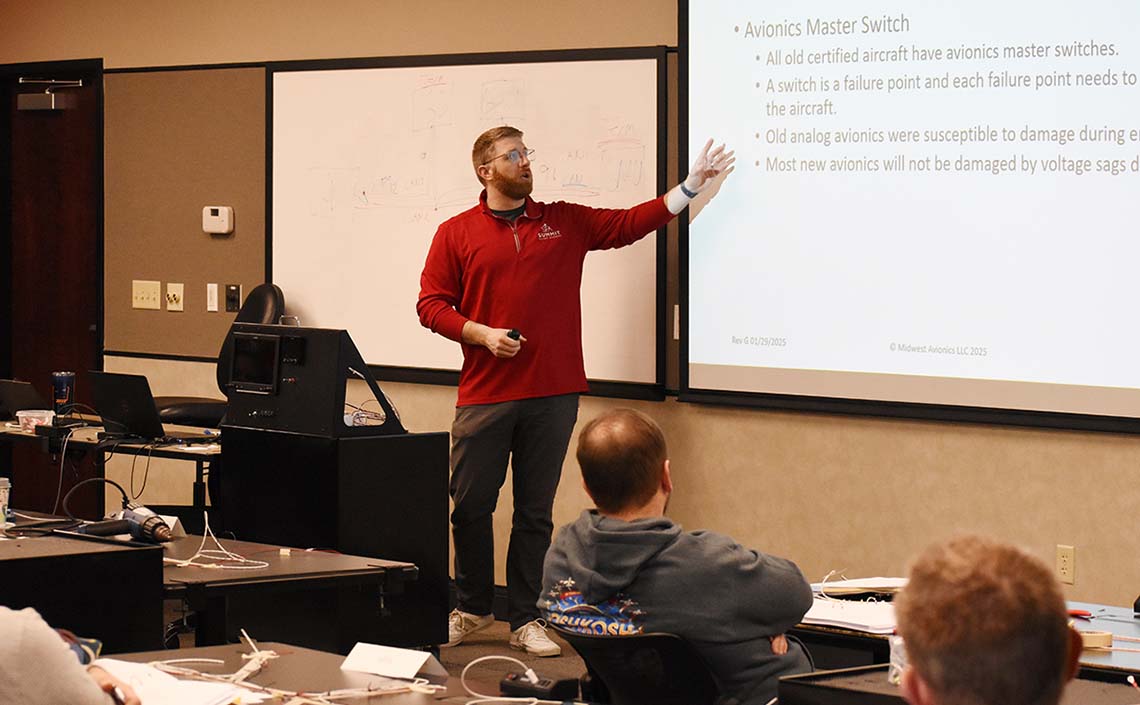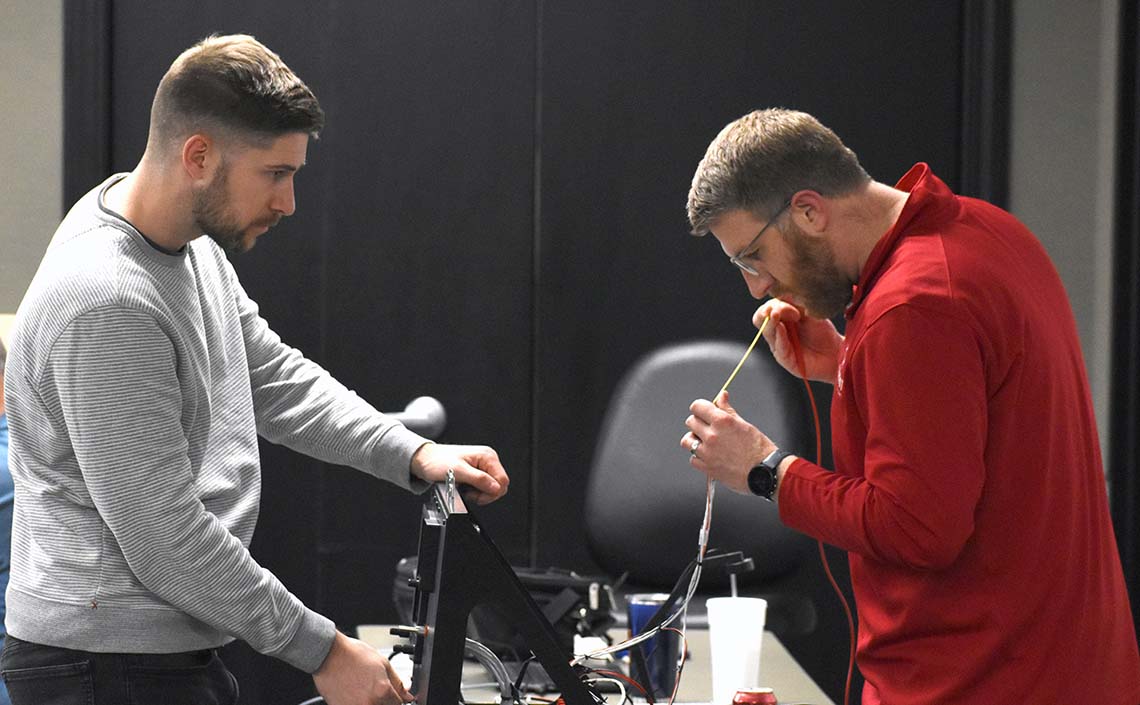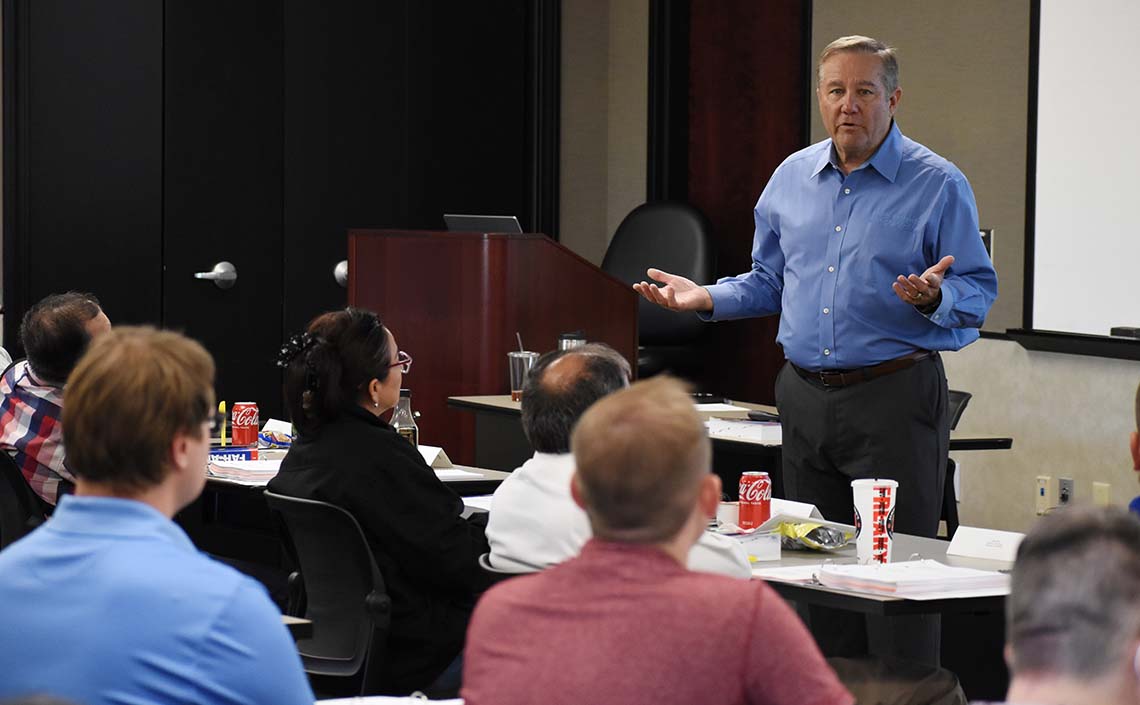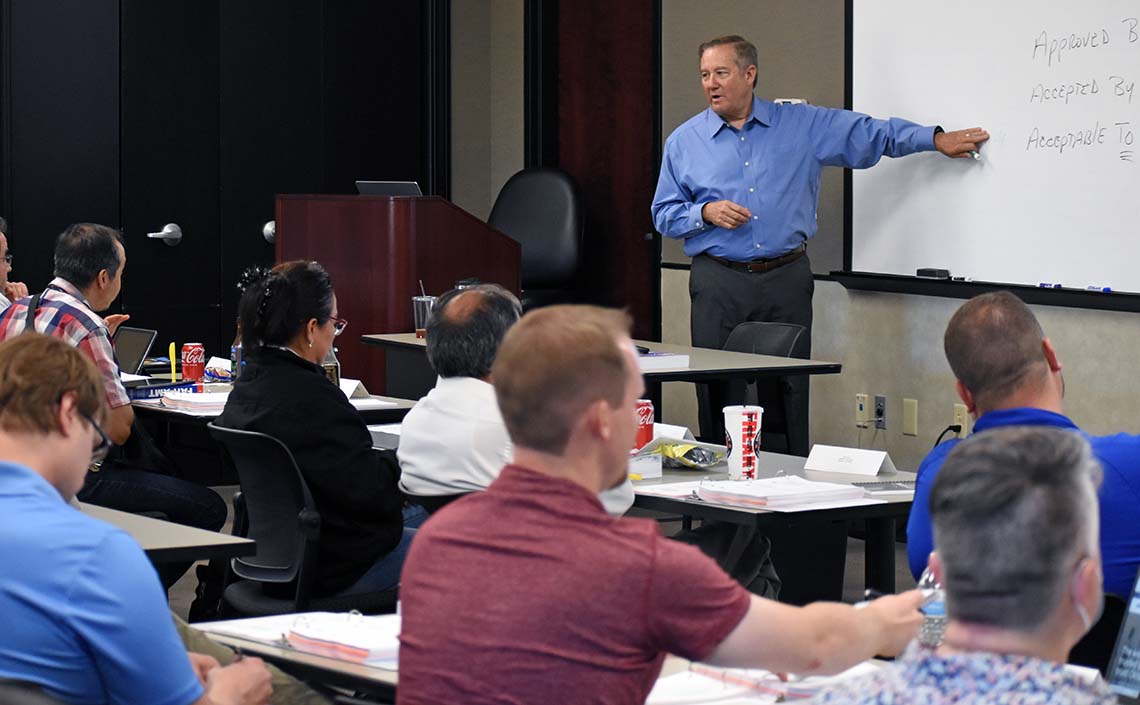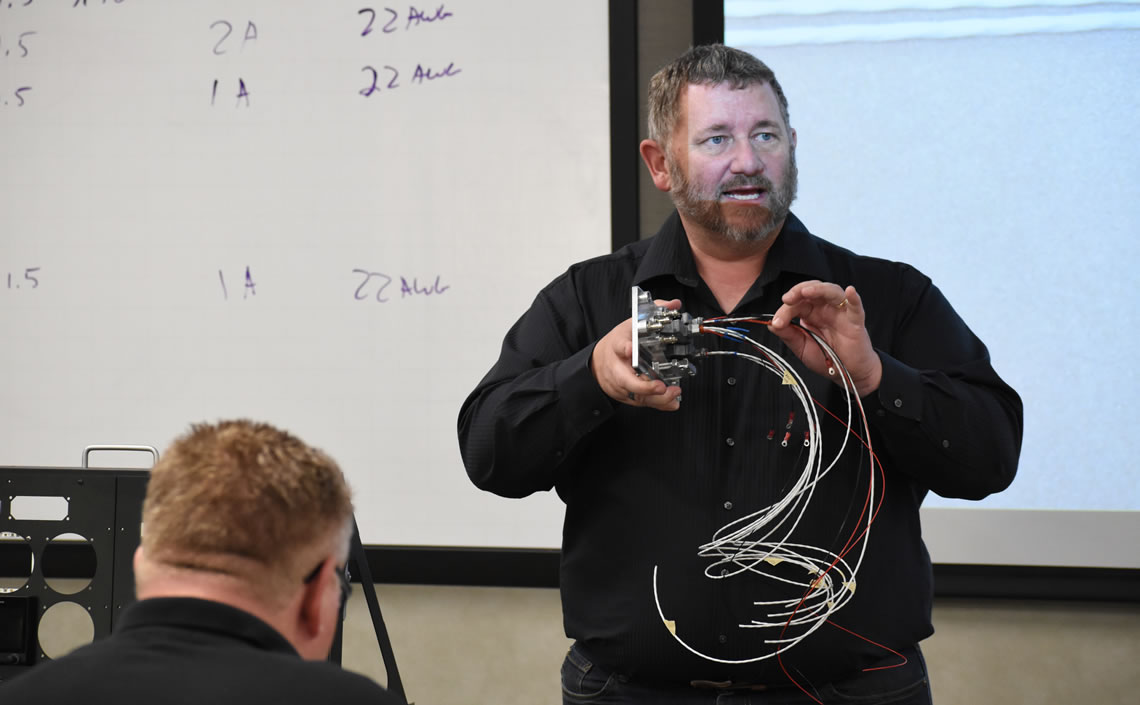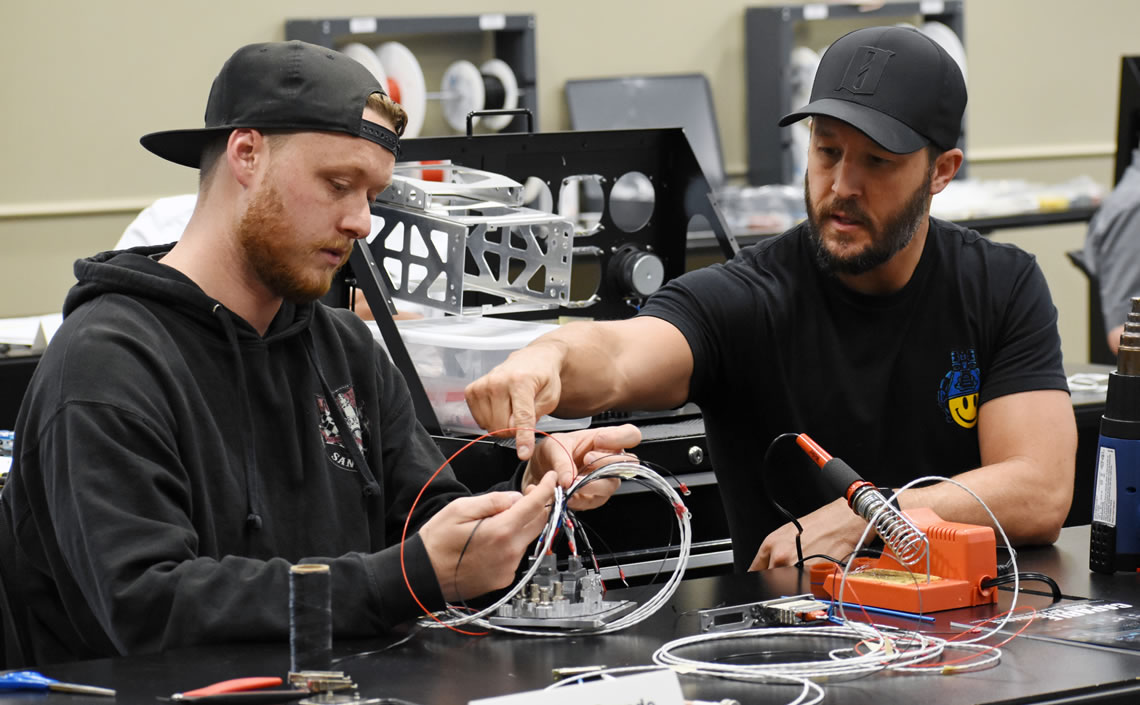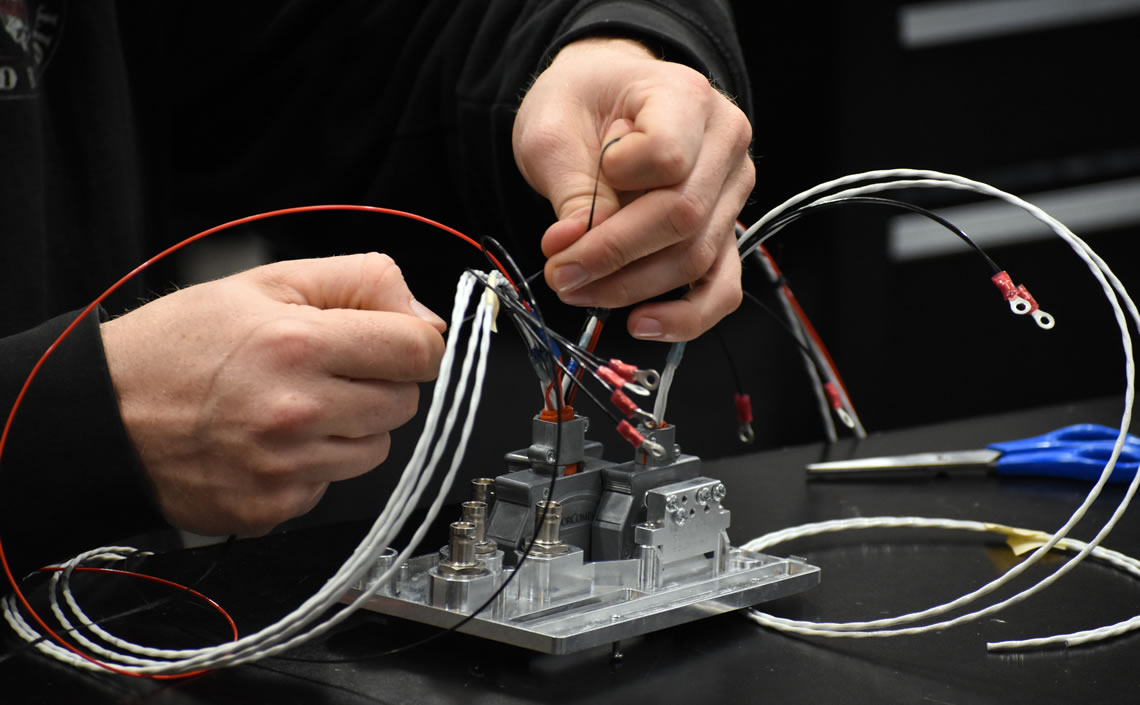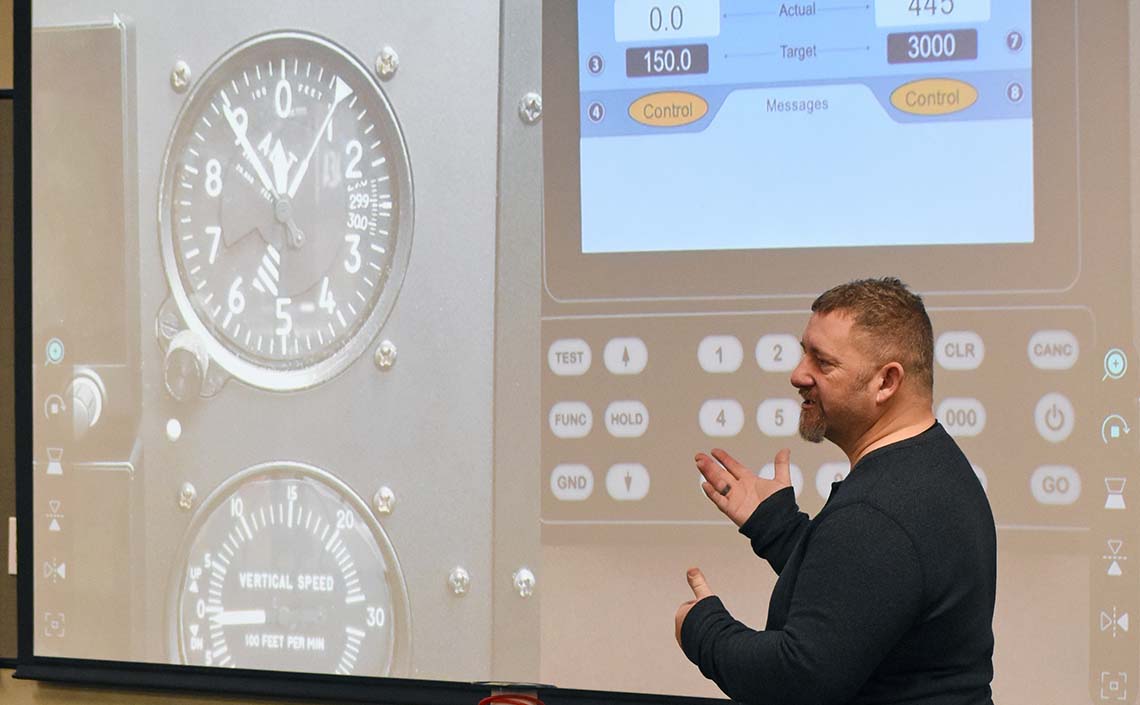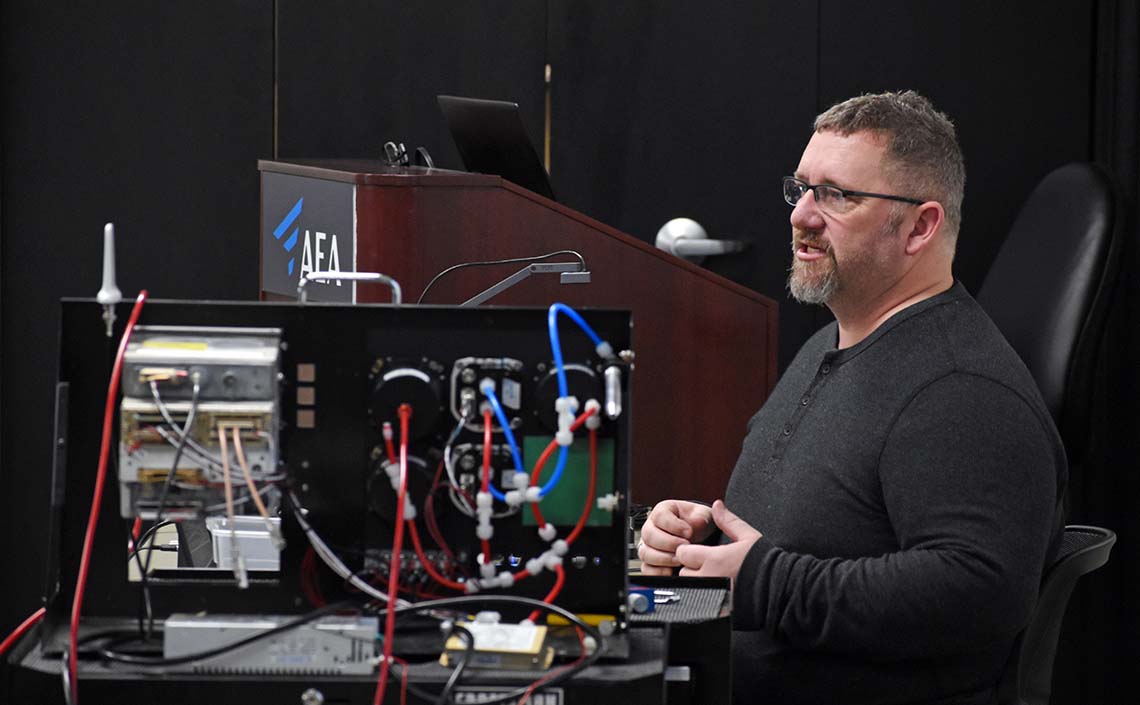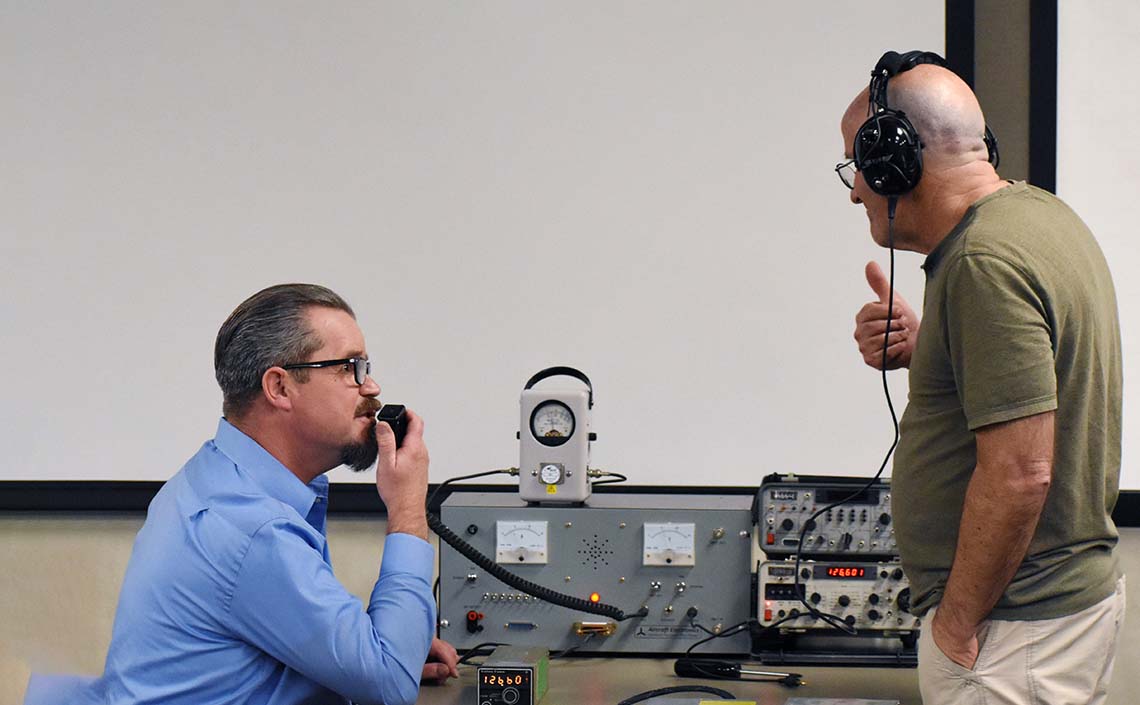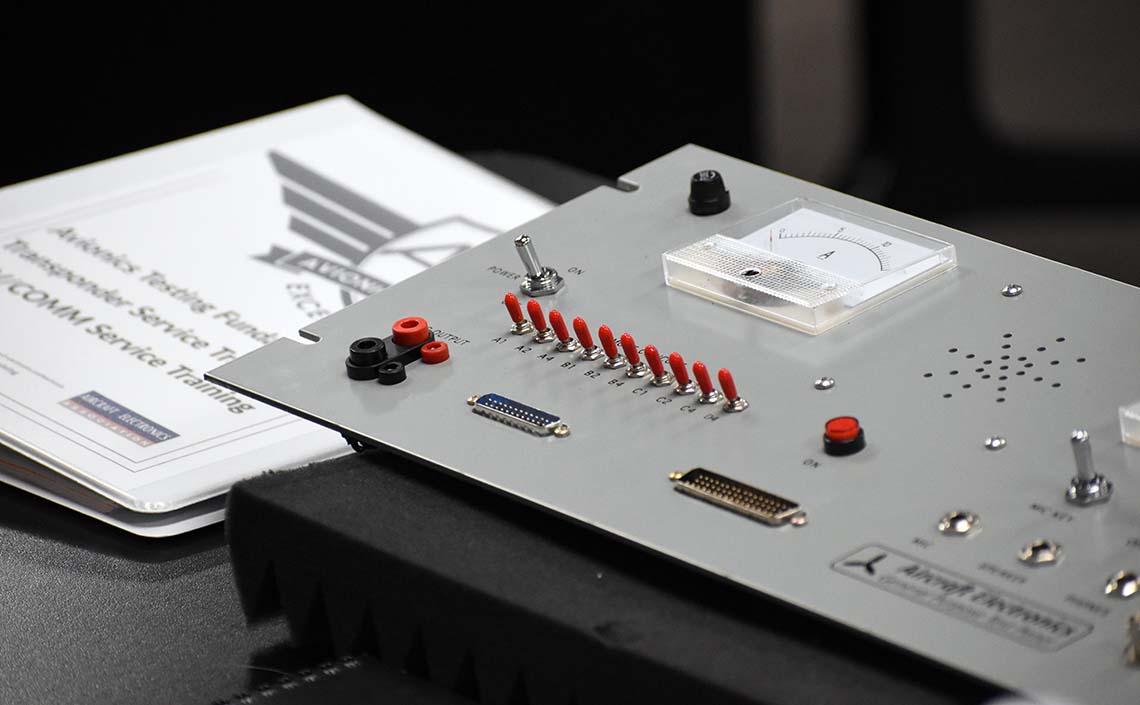The Certified Aircraft Electronics Technician (CAET) Prep Course is a virtual-live class designed for aspiring and current aviation technicians seeking to earn their CAET certification. This course focuses on the fundamental knowledge required for entry-level avionics technician roles.
Presented by: Nick Brown, director of workforce development, AEA
Course Schedule:
- Connection information for the virtual live session will be emailed to the attendee approximately a week before the virtual course date.
- Course materials for the virtual live session will be sent in digital format approximately a week before the virtual course date.
Course Objectives:
Upon successful completion of this course, students will be able to:
- Electrical Fundamentals & Systems: Explain core electrical concepts (Voltage, Current, Resistance, Power) and identify the function of basic aircraft electrical components like batteries, alternators, bus bars, and circuit breakers.
- Wiring Procedures: Describe the basic standard procedures for fundamental wiring tasks including stripping, crimping, connector pin handling, and harness routing.
- Tools & Troubleshooting: Explain the use of common hand tools and the DMM for measuring voltage, resistance, and continuity; apply basic troubleshooting principles to identify common circuit faults.
- Digital Avionics: Explain basic digital databus concepts (including ARINC 429) and related considerations like BITE and EMI.
- Aircraft Instruments & CNS: Describe the basic function of primary flight instruments (pitot-static, gyro, EFIS elements) and common Communication, Navigation, & Surveillance (CNS) equipment.
- Testing Requirements: Recognize the regulatory requirements for pitot-static (91.411) and transponder (91.413) system testing.
Virtual Course:
- This course will be presented live online.
- After registering, attendees will be emailed the information needed to connect.
- Attendees will be emailed the course materials in digital format.
- Attendees are required to connect with a web camera.
Taking the CAET Exam:
Additional information about the CAET and link to take the exam can be found at aea.net/caet.
Other Upcoming Courses
Avionics Installation for Experimental Aircraft
This course is targeted for the home builder or avionics technician who wants to learn about performing an avionics installation in an experimental aircraft. The class focuses on the Garmin G3X Touch system, and a simplified example harness is constructed as part of the hands-on portion of the class. While the G3X Touch system is the primary focus, the wiring principles and general guidance can be applied to any experimental avionics system. From the do-it-yourselfer to the avionics shop looking to carve out a niche, this class has something for everyone.
Safety Management System Coordinator Training
VIRTUAL-LIVE COURSE
Risk management is a vital element of any successful business. Whether driven by best practices or responding to a regulatory requirement, the AEA has your solution. Leveraged by the 900-strong repair station membership, the AEA developed a proprietary SMS program designed specifically for maintenance organizations. This program is currently used on every continent. The AEA has been coordinating with the Federal Aviation Administration and Transport Canada Civil Aviation, as well as discussions with the Australian government's Civil Aviation Safety Authority and the European Union Aviation Safety Agency, for future acceptance.
Certified Repair Station Training
This weeklong course provides an interactive environment to learn, understand and implement the regulations that govern repair station design and operations.
FAA Accepted 5 Hours - Course # C-IND-IM-180621-K-010-001
Basic Wiring & Avionics Installation
The Basic Wiring & Avionics Installation course is designed for certificated repairmen, new avionics technicians, aviation maintenance technicians and recent graduates interested in improving or acquiring the skills necessary to perform avionics installations. This three-day seminar employs in-depth theory and hands-on lab exercises to immerse the attendee in the best practices used to plan, manage, and install a general aviation avionics panel. Installation lab includes: Avidyne IFD540 FMS/GPS Navigator, Garmin G5 Electronic Flight Instrument & GAD 29 ARINC 429 data bus module, PS Engineering PMA8000BT Audio Panel and Trans-Cal SSD120-35C-RS-232 Altitude Encoder
FAA Accepted 8 Hours - Course # C-IND-IM-161028-K-010-002
Basic Pitot-Static & Transponder Theory, Testing & Troubleshooting
The Basic Pitot-Static & Transponder course is designed for entry-level avionics technicians or those looking for basic training on pitot-static & aircraft transponder systems. This two-day course covers the history and theory of operation of pitot-static instruments and transponders, as well as system set-up, hands-on testing, and the troubleshooting skills necessary to perform FAR 91.411 and 91.413 checks.
FAA Accepted 8 Hours - Course # C-IND-IM-240718-K-022-0011
Avionics Service and Testing Fundamentals
Build and Keep Your Test Panel & Harness!
This intensive three-day course is designed for experienced avionics technicians seeking comprehensive training in avionics testing, troubleshooting, and service. Led by industry expert Don Dominguez of Radioman Avionics, participants will gain hands-on experience in bench testing LRUs, flight line testing, and aircraft troubleshooting across various avionics systems. From fundamental concepts to advanced techniques, this course covers a wide range of topics including navigation, communication, and transponder equipment service.
AVX-10K Operations Training
This course is designed to provide maintenance personnel with the knowledge and skills required to operate and configure AVX-10K to verify and maintain transponder, UAT, TCAS, DME, ILS, VOR, Comms and ELT. Plus a complete review all features and benefits of the AVX-10K Flight Line Test Set with emphasis on testing transponder (Mode S and ADS-B In/Out), UAT, TCAS and DME.
Pitot-Static, Transponder, RVSM, and ADS-B: Testing & Inspection
Attendees will learn the proper methods for conducting pitot-static and transponder tests and inspections. This two-day course offers a regulatory review and an explanation of the proper administrative procedures for completing these critical certifications. Preparing and performing RVSM inspection tasks. ADS-B session covering installation, wiring and return to service review.
FAA Accepted 8 Hours - Course # C-IND-IM-170106-K-010-005

